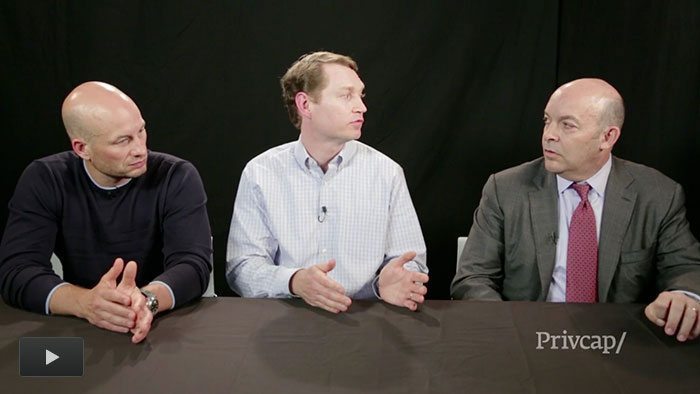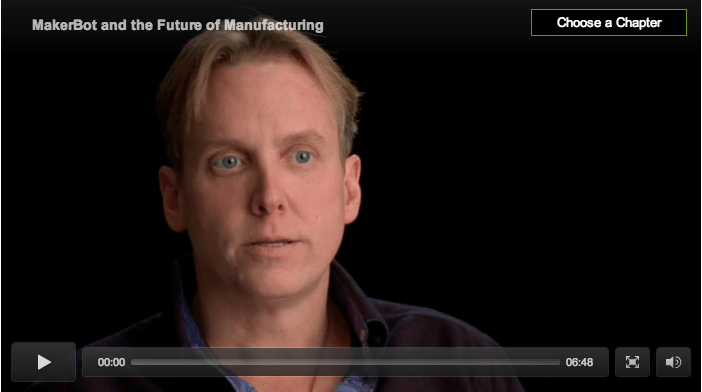Startup Brooklyn
Charlie O’Donnell, the founder of Brooklyn Bridge Ventures, says the NYC borough is a natural place to because some “50 percent of the startup community in New York lives in Brooklyn.” O’Donnell discusses the types of “very early stage” opportunities he looks for, what life is like as a single-partner VC firm, and the move from social networking to online work collaboration seen in platforms like GitHub.
Transcript Download Transcript
Privcap: Please tell us about Brooklyn Bridge Ventures.
Charlie O’Donnell, Brooklyn Bridge Ventures: We’re focused on basically New York seed-stage companies and the technology area, but applied to a lot of different industries. So everything from e-commerce to some hardware models even and a lot of data-related companies. It’s just a function of the types of things that are coming out of New York right now.
Privcap: What’s unique about the Brooklyn VC opportunity?
O”Donnell: I located the business in Brooklyn for a couple of reasons. There’s certainly a convenience reason that Brooklyn is where I live and it’s where I grew up. So it’s always nice to shorten that commute. But I think primarily, it was all about the talent. I would say that about 50% of the startup community in New York lives in Brooklyn. And that’s everybody from founders to developers to designers. It’s a huge residential population and a growing center for people to locate their businesses, because people make the same decisions that I did. They’d rather work close to home if they can afford it.
Brooklyn proves to be a great location start a business. It’s a lot more affordable real estate-wise. And if you’re connected to the talent community that you need to be, it’s definitely an advantage. So that’s why I chose to locate there. And it gives me access to all the same deals that I was looking at the city too, because I’ll invest in any deal in and around New York City.
Privcap: What kinds of seed-stage companies are you interested in right now?
O’Donnell: The company that I look for at Brooklyn Bridge are very early stage. Sometimes I joke around and say that I’m a pre-deck VC. So if you’ve already made that PowerPoint and you’re showing it to other people, it might be too late for me. But I’m willing to look at a wide variety of very early stage stuff.
And I think the keys to the types of things that I’m looking for are where the team really matches the challenge. So for example, when I was at First Round Capital, my previous fund, Wiley Cerilli is an entrepreneur that I backed to do a company called SinglePlatform. SinglePlatform is all about local sales because it sells a product that helps local businesses drive more customers.
That’s a pretty difficult thing to do. Not everybody can walk into a pizzeria and walk out with a check. It’s a very unique sales strategy. And Wiley was the former VP of Sales for SeamlessWeb for 10 years. So if you’re going to bid anybody to do that kind of strategy, that’s the person that you want. And similarly, the entrepreneurs that I’m seeing now are very well positioned to be the right people for their business. That’s a key thing that I look for.
The other things are basically the ability to create a good product. Are you product focused? Do you have the right design team? Do you understand your customer well enough? And obviously they need to be playing in big enough markets to sustain venture backable business too. So they can grow to $50, $100, $500 million companies.
Privcap: What are your predictions for early stage venture capital in 2013?
O’Donnell: One of the trends I’m seeing in the market is the move from social software and social networking, the sort of Web 2.0 space, to collaboration. So a really good example of a company that’s sort of touched off the flock to social was Flickr back in 2003. And a lot of the things that Flickr taught the industry about like embeddable media, pushing out distribution to the edges, social streams, tagging, open pages– you didn’t have to sign in to see the media that was in that site– that really set the tone for the next seven or eight years worth of innovation and consumer internet.
I think you’re seeing something very similar with a company called GitHub. GitHub is what individual software developers use to collaborate with other software developers to build applications and to put code together. So you and I could be working on application, you’re doing the front end, I’m doing the back end. We’re depositing the code that we write to a central location and using these social tools to actually create work. And I think what’s happening is people are realizing that it’s not just about connecting, but it’s about getting work done.
Great, so you and I are both friends on this social network. Do we just look at each other’s photos all day, or do we actually collaborate to produce something economically viable? And so I’m seeing a lot of different models use the GitHub approach of connecting individuals to do work to create real things, whether it’s sharing 3D files on MakerBot’s online community to a company like Docracy that open sources legal documents.
So someone can take a document that is appropriate for New York, make some changes, and all a sudden, make it a California-based NDA. Those types of things are really interesting and I’m seeing that across industries as lots of individuals and consultants decide to make individual businesses out of small one, two, three person practices. So it’s a really interesting model and a trend to watch.
Privcap: What is it like being a one-man VC firm?
O’Donnell: One of the unique things about Brooklyn Bridge Ventures, even though sometimes I’ll say we as– it’s really just me. And there are some really successful models of single partner VC firms– Steve Anderson at Baseline Ventures, Shana Fisher at High Line. It’s been a really interesting transition working prior at a big team like at First Round Capital which is all about collaboration and all the sort of team.
But I think at heart, I’ve been sort of more entrepreneurial and more into sort of calling the shots myself. And I think it benefits me in a lot of ways and it presents some challenges. So one benefit is that at the early stage, you have to take risk. And I think sometimes what happens is when you have a team of partners and you have to convince somebody that this demo project that you just saw at a hackathon can be the next big thing.
It’s very hard to convince somebody that that’s going to be the case. So you might not bet on it if you tried to convince a team of three or four people that that’s going to be the next big thing. But you can more closely follow your gut if you’re the one who is calling the shots and can say yes at the end of a meeting. And at the early stage, you have to take enough risk in the portfolio, otherwise you’re never going to get that big exit to drive the returns.
The challenge is time management. I have to run the business of Brooklyn Bridge Ventures at the same time of dealing with companies and helping everyone. So I’ve really, really become sort of a master at time management out of necessity. So everything from having a virtual assistant, making sure that I’m not doing anything that I could be pushing to a consultant, an intern, an assistant, and really 100% focusing on companies and evaluating deals.
And also leveraging the community. So one of the reasons I’ve been able to help out with hiring is with events. So for example, next week, I’m running an event for Python Developers. I’m getting some CTOs that I know of startup companies that use that programming language to do presentations. We have 100 Python developers showing up, a lot of whom are interested in finding out new opportunities. I don’t know how I would be able to source that group if I didn’t have the connections into the community and being able to figure out the hacks around leveraging a group like that and converting that into real talent leads for my companies.



